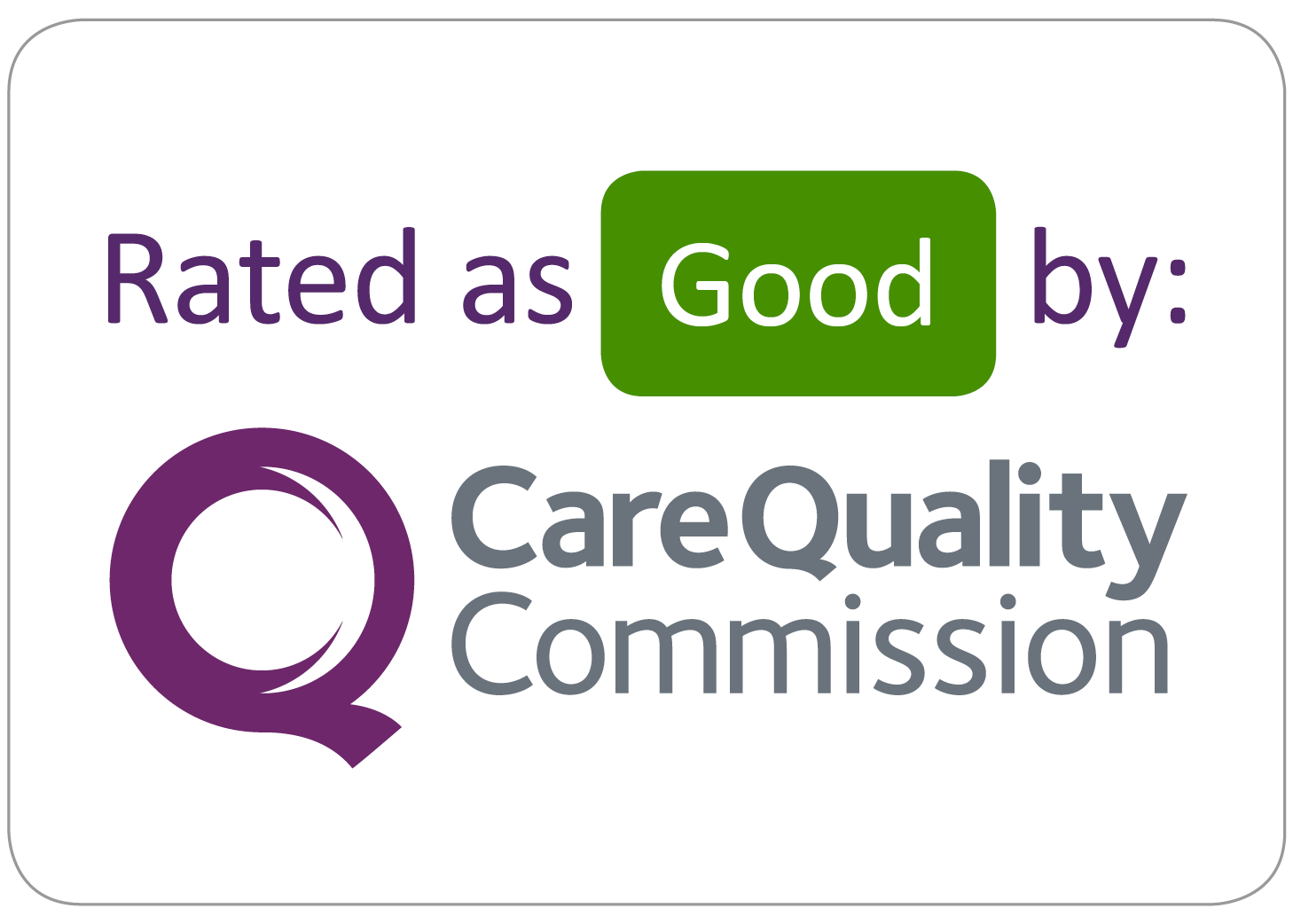Ophthalmology
Important Information
Patient Information Leaflets
We have a number of leaflets available.
They are stored here. Please search using the term ophthalmology
Contact Us
Ophthalmology Department
Emergency Triage 01484 355085
Out Of Ours Ward 8C 01422 223803
Orthoptic Department
Acre Mills Outpatients 01484 343237
Calderdale Royal Hospital 01422 222218
Optometry Department
Acre Mills Outpatients 01484 343239
Eye Clinic Liaison Officer (ECLO)
Acre Mills Outpatients 01484 343239
Appointments Centre
01484 355370
Meet the team
Consultants
Mr Aiden Benson - Vitreoretinal surgery
Ms Bong- Cornea
Ms I Dias – Medical Retina
Mr Z Estephan –Medical Retina, General Ophthalmology and Cataract surgery
Miss K Hollingworth – General ophthalmology and New Patient Clinics
Ms R Lagnado - Cornea, Ophthalmic Plastic Surgery and Lacrimal Surgery.
Mr Mohammad Mohyudin- Oculomotility, Paediactrics, Oculplastics
Mr Olali- Medical Retina
Mr G Oworu – General Ophthalmology, Oculoplastic and Cataract Surgery
Mr K C Patel – Oculoplastic, General Ophthalmology and Cataract surgery
Mr F Pilliteri- General
Ms R Rahman - , Macular surgery and Cataract surgery.
Speciality Doctors
Dr Bhagyashree Shevade
Dr Shaista Saeed
Dr Mohsan Fayyaz
Nurse Practitioner
Clare Harrower
Gemma Wood
Trust Grade Doctors
Dr Nosheen Khan
Nursing Staff
Corinna Hampshire- Head and Neck Services Matron
Victoria Smith – Eye Cinic Manager
Diane Lee - Sister, Huddersfield Royal Infirmary – Acre Mill
Karen Lord– Sister, Calderdale Royal Infirmary
Team of Staff Nurses, Ophthalmic technicians and Health Care Assistants work across clinics on both sites
Orthoptists
Emma Griffiths- Clinical Manager for Orthoptics and Optometry
Lorna Clarke
Rachael Calvey
Emma Lee
Ross Charlesworth
Laura Charlesworth
Cristiana Hattersley
Kausar Abbas
Hemma Begum
Zara Sadhaf
Asma Arif
Aai'sha Khan
Andrea McKean- Assistant
Mutsa Boddison- Assistant
Donna Taylor- Assistant
Jennylee Chisholm- Assistant
Tom Hayes- Assistant
Optometrists
Nigel Higginson- Specialist Optometrist - Glaucoma, Refractions, Research
Russell Ramsden - Specialist Optometrist - Contact Lens Service Lead, Glaucoma
Indu Gupta - Specialist Optometrist – Medical retina, cornea, refractions
Mahria Akram - Specialist Optometrist - Glaucoma
Barney Norris -Optometrist, Paediatric refractions
Alex Swystun- Specialist Optometrist - Glaucoma
Eye Clinic Liaison Officer (ECLO)
The ECLO service provides practical and emotional support to anyone affected by an eye condition and is based in the eye clinic at Acre Mills Outpatients. The ECLO office is a place to talk through the concerns associated with sight loss and gain useful information on the best way forward as well as onward referrals for more support.
Fran Reilly is the ECLO for Calderdale and Huddersfield Trust. She is employed by the RNIB and is based within the eye clinic to be as available as possible for the patients and their families who need her help.
Feel free to pop into the eye clinic to see her or give her a ring on 07849 700572
E-mail – fran.reilly@cht.nhs.uk
https://www.rcophth.ac.uk/professional-resources/certificate-of-vision-impairment/
Secretaries
Patient Pathway Coordinators- Fiona Fraser and Shirley Lunn
Waiting List Coordniators- Petra Keirnan and Aleesha Sarwar
Vitreoretina Coordinator- Claire Byrne
Our Services
Paediatric Service
Paediatric ophthalmology clinics are held in both Huddersfield & Halifax providing specialist care for children with eye conditions such as squint, motility problems, amblyopia, cataract, glaucoma, and cortical visual loss. Ophthalmology consultants work closely with orthoptists, optometrists, paediatricians, the low vision service and the community visual impairment teams, and teachers for the visually impaired to diagnose, treat and manage conditions to allow children to gain and achieve their maximum visual potential. Due to the complex nature of this clinic, appointments can last up to 2 hours. Children attending will usually need drops that can take up to an hour to have an effect before through examination can take place.
Ophthalmic Services
The Calderdale and Huddersfield Foundation Trust Ophthalmology Department is a demand led service that is proud to be one of the busiest in the region. We offer a comprehensive range of ophthalmic services comprising of general ophthalmology and sub-specialist services. Our consultants offer a wide range of treatments and services allowing us to accept referrals nationally from Primary care services and other health care providers.
The exception is specialist ocular oncology, which is provided in Sheffield Teaching Hospital and Royal Liverpool Hospital.
The Ophthalmology team includes Consultants, Orthoptists, Nurse Practitioners, Optometrists and a diverse Nursing and Health care support team.
Oculoplastic Service
The Oculoplastic Service oversees assessment, investigation, and management of eyelid, eyebrow, lacrimal (tear draining system), and orbital (eye socket) disorders for both children and adults. This includes common conditions such as ptosis (drooping upper eyelid), dermatochalasis (excess upper eyelid skin), entropion (in-turning of the eyelid), ectropion (out-turning of the eyelid), various skin cancers, nasolacrimal system (tear duct drainage system) obstruction, and thyroid eye disease. Patients are referred from GP’s, opticians, consultant ophthalmologists, and other consultants within the hospital.
Macular Service
Macular clinics are held on both hospital sites and run by a multidisciplinary team consisting of medical retina consultants, general Doctors, ophthalmic nurse practitioners, optometrists as well as the nursing team and other technicians within the department. Patients attending are initially referred urgently and seen within 2 weeks of referral if their GP or Optician suspects they have wet macular degeneration. The clinics are a one stop service which means on the first initial visit several tests and investigations will be carried out with the results instant so a plan of treatment and care can then be offered. The treatment is usually commenced on initial visit but subsequent visits to the department will be required. The macular clinics are extremely busy clinics and your initial visit could take up to 4 hours. Subsequent visits will be at regular intervals depending on the treatment pathway you have commenced.
Ocular Motility Service
Ocular motility clinics specialize in eye movement disorders ranging from children with squints to adults with double vision. Orthoptists and optometrists work closely with Consultant ophthalmologists to diagnose and treat such conditions as well as provide glasses, exercises, and therapeutic relief. Pre and post-operative examinations are carried out in this clinic for patients requiring surgery for visual or cosmetic conditions.
Nurse led cyst clinics
These clinics are run by ophthalmic nurse practitioners who have undertaken advanced training in this field. There is a clinic held once per fortnight at either site. New Patients are usually referred via their GP or optician and will attend a one stop service. Patients will be examined, diagnosed and treated appropriately at the clinic which could involve a minor operation if required. Some patients require a follow up appointment depending on their diagnosis.
Glaucoma Service
This shared care service involves Glaucoma Specialist consultants, General Opththalmogy doctors as well as Nurse practitioners, Optometrists, Orthoptists and technicians who have undertaken advanced training in this area . Community optometrists are also involved in Glaucoma referral refinement schemes and Ocular Hypertension monitoring schemes. New patients referred with suspected glaucoma will attend the Glaucoma screening clinic to complete a number of tests recommended by the NICE guidelines . Decisions on diagnosis, treatment and future management can be made either on the day by the reviewing clinician or virtually by a Glaucoma specialist. Monitoring appointments will be made appropriately either in the eye clinic or at a chosen community optometrist.
Contact Lens Clinics
Medical contact lenses are supplied to patients on both sites by our hospital optometrists for three main reasons, firstly when satisfactory vision cannot be obtained through spectacles but can with contact lenses, secondly when exceptionally strong spectacles are required and thirdly when the appearance of the eye is unacceptable
Contact lenses are subject to a National Charge set by the Department of
Health each year.
Current charges are as follows:
£60.75 per lens
£121.50 per pair
This charge covers a 6 month supply.
Lost or Broken contact lenses will also be charged at the above rate.
Please note if you are exempt from payments, this does not automatically
mean that you will be entitled to a replacement lens free of charge.
Exemptions - Proof of eligibility will be required at the time of ordering.
• Patients aged under 16, under 19 in full time education.
• Patients on an income based benefit.
• Patients who need their contact lenses changed for clinical reasons.
• Patients requiring the following lens designs a) piggy back lenses b)
painted cosmetic and occlusive lenses are also exempt.
Ophthalmology Department
Contact Lens Service
How long will it take to receive my contact lenses?
Contact lenses will not be ordered until proof of payment or exemption has
been seen.
How long it takes to receive your replacement depends on the complexity of
contact lens ordered and manufacturer used but can typically take two to six
weeks. Scleral contact lenses may take up to eight weeks to arrive.
Please wait until after your advised wait time before contacting the department
with any queries.
Collection
You can collect your Contact lenses from the eye clinic between the following
times:
Acre Mill Mon - Friday 8am – 4.30pm. Later collection is possible until 6.00pm
if arranged in advance.
Calderdale Royal Infirmary Mon - Friday 8.30am- 4.30pm
Postage
If lenses are to be posted, there is a charge of £4.50 per package.
This charge does not apply if you are exempt from contact lens charges.
Make a payment
Visit: the general office at Calderdale Royal Hospital or Huddersfield Royal
Infirmary
Monday - Friday 8.30am and 4.30pm
Via our website: www.cht.nhs.uk/services/non-clinical-services/online-payments/
Orthoptic Clinics
Orthoptic clinics run on a daily basis for the assessment and treatment of ocular motility disorders such as squint, amblyopia ("lazy eye"), double vision and nystagmus. This will include patients who have suffered a stroke, double vision associated with other conditions such as diabetes, thyroid disorders and neurological conditions. Patients are referred from consultant ophthalmologists, optometrists, GPs or other consultants within the hospital. A large proportion of the patients are young children, who often attend for treatment over several years whilst their visual systems are maturing. Health visitors and school nurses also have access to this service to allow any concerns about a child’s eye sight to be addressed at the earliest possible opportunity.
Low Vision Clinics
The Low Vision Clinic is a service for people who have a visual impairment which is unable to be improved by medical treatment. The aim of the clinic is to give advice, support, information and low vision aids to maximise and utilise the remaining vision. Onward referral to appropriate services where necessary is also made.
The most common conditions seen in the low vision clinic are Age related macular degeneration, Diabetic retinopathy, Glaucoma, untreated cataracts and Nystagmus, however, this list is not exhaustive.
Referral to the low vision clinic is from a number of sources – internally from Ophthalmology and Orthoptics, externally from GP’s, local Optometrists and the adult and Paediatric Visual Impairment teams. It is preferable if the referral includes a diagnosis and the patient should be advised to have an up to date glasses check with their optician and asked to bring glasses with them to the appointment even if not worn.
During a Low Vision Assessment, we discuss and explain the diagnosis with the patient and are often a first point of contact for basic counselling. Assessment and training in the use of low vision aids is given and where required are issued on long term loan. Training in steady eye strategy and eccentric viewing is given where appropriate. If further, more in depth, help, advice, support and counselling is required the patient is referred to our Eye Clinic Liaison Officer (Huddersfield) and First Point of Call for the Visually Impaired (Halifax).
If a review appointment is not made on the day, the patient is given an open appointment with contact details for the department so they can request a further appointment any time in the future without requiring a new referral to the low vision clinic.
Stroke Service
Orthoptists have a close working relationship with Occupational Therapists and Physiotherapists on the acute stroke and stroke rehabilitation wards. Any patient who suffers a visual problem following a stroke can be referred for a vision screening assessment by an Orthoptist on a weekly ward round so that a decision can be made as to whether the patient requires further treatment or more comprehensive vision tests in order to aid their rehabilitation and quality of life. Alternatively, there is a direct referral system in place for patients who have been discharged back into community Occupational Therapy care for those needing ophthalmic care.
Special School Service
An orthoptist visits a number of special schools in the area assessing and monitoring children with more complex needs vision in an environment they are more familiar and comfortable with. This aids the detection and treatment of eye conditions as well as providing a fictional visual assessment for those children who traditional tests may not be suited. Referrals into clinic for refraction and consultant input can be made where necessary and this multidisciplinary team can then liaise with the education service to ensure all findings are considered in the educational context.
Primary Vision Screening
Orthoptists provide vision screening across the Calderdale area , screening reception class children in school for visual defects in line with the UK National Screening Committee. This recommends all children between the ages of 4-5 should be given the chance of having a vision assessment in school. Early detection of eye problems such as amblyopia (lazy eye/reduced vision) and strabismus (squint) allows avoidable permanent visual deficit. Children found with such problems can be treated in the hospital or by an outside optician during the critical development period of the eye (up to 8 years of age).
Students and Post Graduate Training
Students and Post graduate training.
The ophthalmology department is accredited by the Royal College of ophthalmologists to deliver our patient and surgical training to junior doctors who will become the next generation of ophthalmology consultants as part of the Yorkshire School of Ophthalmology and the Yorkshire and Humber Deanery.
We also train Physician Associates from Leeds University, post graduate optometrists, and are an accredited establishment for the training of undergraduate nurses, orthoptic students, and regularly receive students from the universities of Huddersfield, Sheffield and Liverpool.
As part of our commitment to education and training we hosted the Part 2 FRCOphth exams in April 2018 on behalf of the Royal College of ophthalmologists.

















